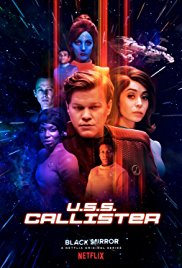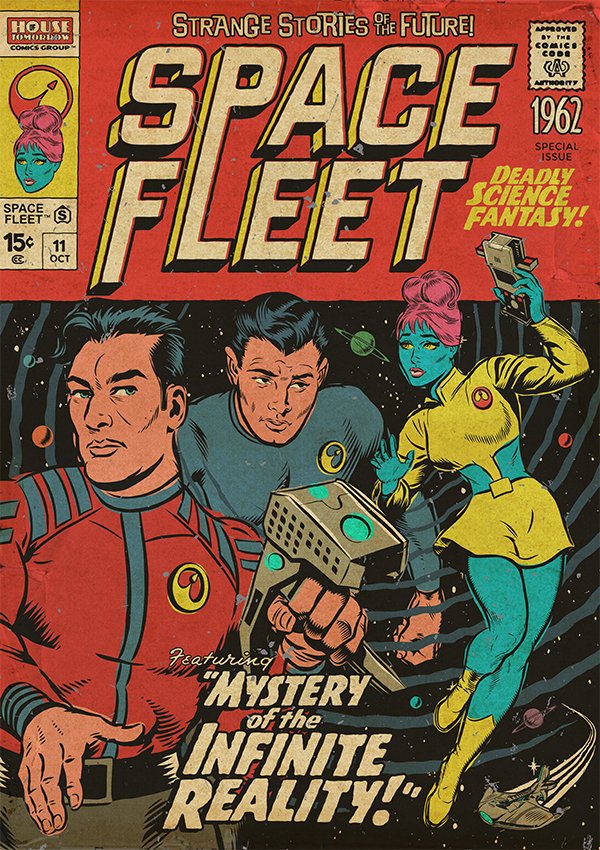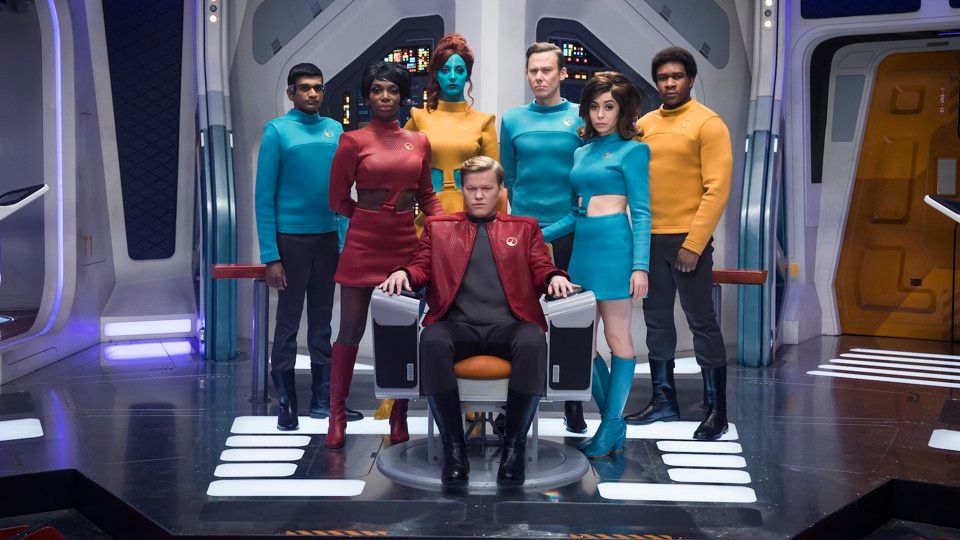Media Reflection and Review: Black Mirror, “USS Callister”
Black Mirror is a show that examines possible versions of futures, as technologies and humans become more intertwined. The show emphasizes that as our technology advances, we are confronted with a diversity of associated ethical and moral choices. Each possible way humans could handle themselves, when these advances saturate the entire culture, has a variety of possible implications from personal to professional, internal to external, emotional to legal. This specific episode, “USS Callister,” follows a group of people navigating constructs of tyranny, consent, slavery, control (oppressed vs oppressors), and obedience.

Robert Daly, the lead developer of a software development company, feels that he is being disregarded by the employees and co-founder of his company. His obsession with a sci-fi series has inspired him to model his own digital fantasy world after the show. By forcibly inputting his colleagues into this world, he is able to assert his dominance over them—a thing he is unable to do in the “real” world. His dualistic personality is one of the driving forces behind the plot of the story. In the office, he is reserved and withdrawn, but as the captain of his own space ship, he becomes overbearing and cruel.

One of the most intriguing questions that “USS Callister” brings up is that of basic rights. Technically, Daly is not holding these people as hostages. He has created a secondary digital version of them by stealing their DNA. Is this digital copy of a person (a digital copy that has all memories and agency of the embodied person) guaranteed human rights, such as freedom and happiness? Are they a person, when they no longer are attached to their physical body? Does the person inhabiting the physical body have intellectual rights over the copy? What rights of autonomy does a digital copy of someone’s brainwaves have?
Another topic the authors specifically call attention to is that of the inequities women face in the workplace, even the one of the future. Stereotypical assumptions are made by Kabir, when he tells Nanette there was no way she could hack into the system, since he couldn’t. Daly uses his power to force the women to kiss him upon the completion of each mission. By commenting through both the lens of past sci-fi shows of the late 1960s and the projection of the possibilities of the not-so-distant future, the authors are emphasizing the ways that sexism is still very prevalent in the corporate workplace.

If this story does anything really well, it is how it demonstrates the lengths people will go to achieve domination and power over others and how those who are being subjugated will fight for the freedom from such oppression. The things Daly does in order to maintain the crew’s obedience were designed specifically to make them fear him, in order to keep them submissive. While he had conditioned the majority to obey, Cole’s arrival renews the entire crew’s desire to risk their lives being subject to his tortures indefinitely in order to fight for their liberation. Together, they cooperate and plan a “revolution” of sorts—the oppressed majority against the seemingly invincible tyrant.
This thought experiment (as that is what fiction is, right?), examines the way psychological and social structures adapt when the balance of group order and power dynamics is altered dramatically. Opposing his “real” world self, the chauvinist CEO, Walton, literally submits to becoming a footstool for Daly. Nanette, without the motivation of Daly’s enslavement, is easily maneuvered by gossip and threats. By the end of the story, Walton turns into an unsuspecting hero by sacrificing himself for the sake of the others and Nanette confidently asserts herself in a leadership position. A group of individuals that, in the beginning, was passively accepting of their imprisonment, turns into a collective actively working together to achieve freedom. As the Enlightenment thinkers noticed, every human has an implicit desire for freedom and they will do whatever it takes to attain and preserve that freedom.
In using modern and futuristic technology as the catalyst (and backdrop) for this story, the writers provide the audience a degree of separation from the material, while still making a strong impact. The audience is left wondering what the effect will be from preserving the hyper-misogynistic culture of the past and whether it will continue into the future. The story gives the viewers an almost plausible “it could happen to you,” asking “what would you do?” As the voices from the past are guiding us (Francis Bacon saying, “Knowledge is power,” and the Delphi Oracle saying, “Know thyself”), future thought experiments, like this, allow us the power of self-reflection about these seeming impossibilities.
Good Science Friction